In a city known for its heritage, culture, and contradictions, a new chapter of innovation unfolded at Techno India University. A transformative initiative to reimagine the city of Kolkata as an inclusive and sustainable urban space concluded this week at Techno India University. The week-long innovation sprint, titled the Sandbox CCU Challenge, was held from April 16 to 22, 2025, bringing together students, facilitators, urban planners, and innovators for an intensive co-creation experience.
Organised by Elseplay and the rebalance institute, and powered by Make Calcutta Relevant Again (MCRA), the Sandbox CCU Challenge 2025 aimed to foster interdisciplinary collaboration through design thinking, gamified prototyping, and urban imagination. The initiative welcomed a diverse set of participants from School of the Future, Techno India University, Techno Main Salt Lake and Bengal Institute of Technology, committed to addressing some of the city’s most pressing challenges across domains such as employment, transportation, healthcare, and heritage.
DAY 1:

The program commenced on April 16 at 9:00 AM with an interactive inaugural address by Rohaan Goswami, Founder and CEO Elseplay. Rohaan took an interactive session for about 1hr 30min describing about Sandbox CCU, Kolkata’s condition right now and much more. Participants were introduced to the creative space layout, where rooms and zones were renamed after iconic Kolkata landmarks such as Eden Garden (auditorium), Botanical Garden (canteen), Park Street (corridor), Esplanade (working area), Laal Bazar (reception), and Kumartuli (material station), among others.
The opening session included a keynote by Meghdut Roy Chowdhury, Chief Innovation Officer at Techno India Group and Founder of Make Calcutta Relevant Again. He highlighted both the positive attributes and challenges of Kolkata, urging the youth to imagine bold, community-driven solutions to the city’s problems. The speech was followed by a collaborative networking exercise, designed to foster connections among participants from diverse backgrounds.
Chief Facilitator Pauline Laravoire introduced the event’s framework and clarified the rules of engagement, including feedback mechanisms (“Deltas”) and teamwork expectations. Participants were grouped into four opportunity domains:
Learning & Employment
Heritage Spaces
Healthcare & Wellbeing
Transportation & Mobility


Rohaan led a quick interaction activity that allowed participants to break the ice and understand the importance of collaboration. As participants began their initial brainstorming, Rohaan and Pauline provided guidance on ideation techniques. Each group began preliminary ideation on solutions aligned with their domain. The day concluded with a guest address by Mr. Darshan and closing remarks by Rohaan and Pauline.
DAY 2:
The program opened with an energetic warm-up led by Pauline, including a light-hearted “Rock, Paper, Scissors” game to ignite team spirit. Rohaan and Pauline then conducted an informative session on prototyping and the key components of an impactful presentation. Participants were challenged to create a futuristic utility bag designed to solve an everyday problem for the citizens of Kolkata. After 20 minutes of rapid prototyping, teams returned to Eden Gardens to share insights and iterate.


The cohort was then introduced to Minetest, an open-source gaming platform, to build virtual models of their solutions. This was followed by another 20-minute design sprint. The day also featured a guest lecture by Sayantan Maitra, who offered valuable insights into sustainable city planning and participatory urban governance. The session concluded with a reflective wrap-up by the facilitation team.
DAYS 3 & 4:
On April 18 and 19, the program moved online. Only team leaders participated in digital check-in sessions with Rohaan. These meetings provided an opportunity to track progress, address design or execution challenges, and fine-tune ideas in preparation for the upcoming exhibition and presentations.
DAY 5:
Returning to the campus on April 21, participants gathered for a full-day session beginning at 9:30 AM. Rohaan and Pauline delivered opening remarks and introduced a morning activity to encourage creative thinking. The highlight of the day was the announcement of the top nine semi-finalist teams, which included one wildcard entry. The selected teams were: Durga Dut; Ghori Chakra; Abol Tabol; Arohan; Ignitron; Wheels of Future; Shomriddhi; CalConnect; Preservia.



Detailed instructions were provided on how to prepare for the semi-final round, including the structure of presentations and the use of digital tools like Minecraft for prototype visualization. At 12:30 PM, teams delivered their practice presentations in front of the facilitation panel.
Post-lunch activities included an engaging session to reinvigorate participants. The day ended with time allocated for exhibition setup and a final address by the facilitators, outlining expectations for the final day.
DAY 6:
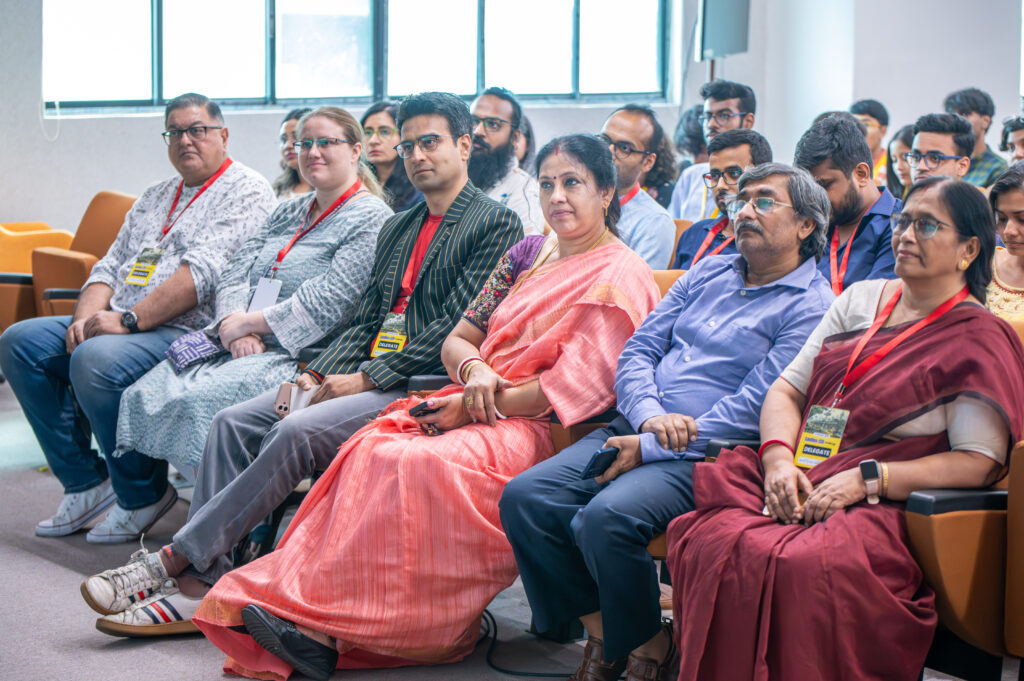
The final day, held on April 22, commenced with a morning speech by Rohaan followed by a fun activity which helped them to boost their energy. The wildcard entry, MediReach, was officially announced and welcomed as the sixth finalist team. Following a break, the top six finalists were revealed:
Preservia: Preservia focuses on revitalizing Kolkata’s heritage through modern technology and community engagement. Their project aims to digitally document and preserve historical landmarks while promoting sustainable tourism and local involvement. With a strong emphasis on education and cultural continuity.
Shomriddhi: Shomriddhi is a dynamic team dedicated to building a more equitable and economically empowered Kolkata. Their initiative focuses on creating inclusive employment opportunities by connecting marginalized communities with skill development programs and local enterprises. By bridging the gap between talent and opportunity, Shomriddhi envisions a city where prosperity is shared and sustainable.
Arohan: Arohan is a forward-thinking team that envisions harnessing the power of renewable energy to empower communities. Their concept introduces a satellite-based system designed to capture solar energy from space and transmit it back to Earth, providing a sustainable and equitable energy source for Kolkata’s underserved areas. By combining cutting-edge space technology with a mission of social upliftment, Arohan aims to redefine how cities access and distribute clean energy.
CalConnect: CalConnect is a dedicated to reimagining Kolkata’s public parks as inclusive, tech-enabled spaces for all age groups. Their initiative focuses on integrating smart infrastructure-such as interactive installations, digital fitness zones, and accessible play areas-to make parks more engaging, safe, and future-ready. CalConnect aims to transform urban green spaces into vibrant community hubs that foster wellness, connection, and innovation
Ghori Chakra: Ghori Chakra is a visionary team which blending traditional art with modern modular design. Their project features a uniquely crafted pathway adorned with Bengali gamcha and Madhubani prints-celebrating cultural identity while introducing functionality. The standout innovation lies in its detachable segments, allowing for easy assembly, mobility, and adaptive urban use. Ghori Chakra’s design reflects a perfect harmony of heritage aesthetics and contemporary urban utility.
MediReach: MediReach focuses on transforming public hygiene infrastructure in Kolkata. Their project reimagines public toilets through smart, touch-free solutions powered by solar energy. With innovations like sensor-based systems, automated floor dryers, and enhanced sanitation features, Medi Reach aims to provide a cleaner, safer, and more dignified restroom experience for all-emphasizing accessibility, sustainability, and public health.

Participants were given time to design and decorate their exhibition spaces, after which the official Project Showcase and Openhouse began. A panel discussion called “Kolkata – Flip the Script” was held – the panelists being RJ Arvind, Chelsea McGill, Sayantan Maitra Boka, Vikramjit Roy, Niloy Das and Siddharth Agarwal, and moderated by Meghdut Roy Chowdhury. The six finalists then presented their projects before the panel in a public showcase. The closing event was a city prototype exhibition, open from 7:00 PM to 8:30 PM, where all participating teams exhibited their concepts and interacted with visitors. Attendees included students, faculty, industry experts, urbanists, and members of the general public.
Innovation sprints such as the Sandbox CCU Challenge 2025 at Techno India University offer a powerful model for urban transformation. By bringing together diverse minds and equipping them with tools for rapid prototyping, gamified simulation, and collaborative storytelling, these intensive bootcamps cultivate a culture of inclusive city-making and participatory problem-solving. This approach underscores a fundamental truth: cities are shaped not just by policy, but by the collective imagination and proactive engagement of their people. The tangible ideas generated and the collaborative spirit fostered during this week-long event highlight the potential for Kolkata’s youth to be the driving force behind its sustainable and inclusive future.

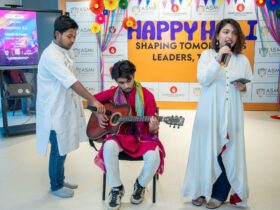
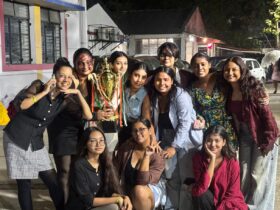
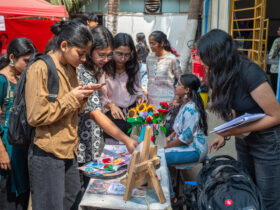
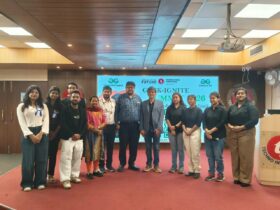
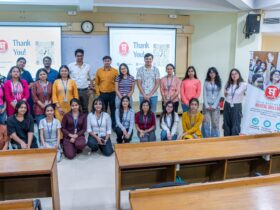
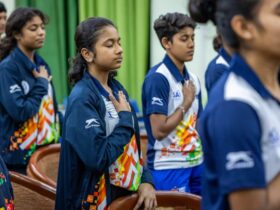
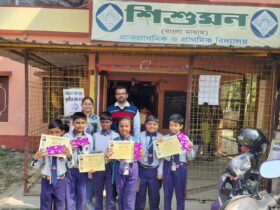
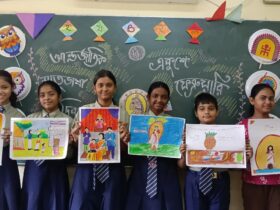

Leave a Reply